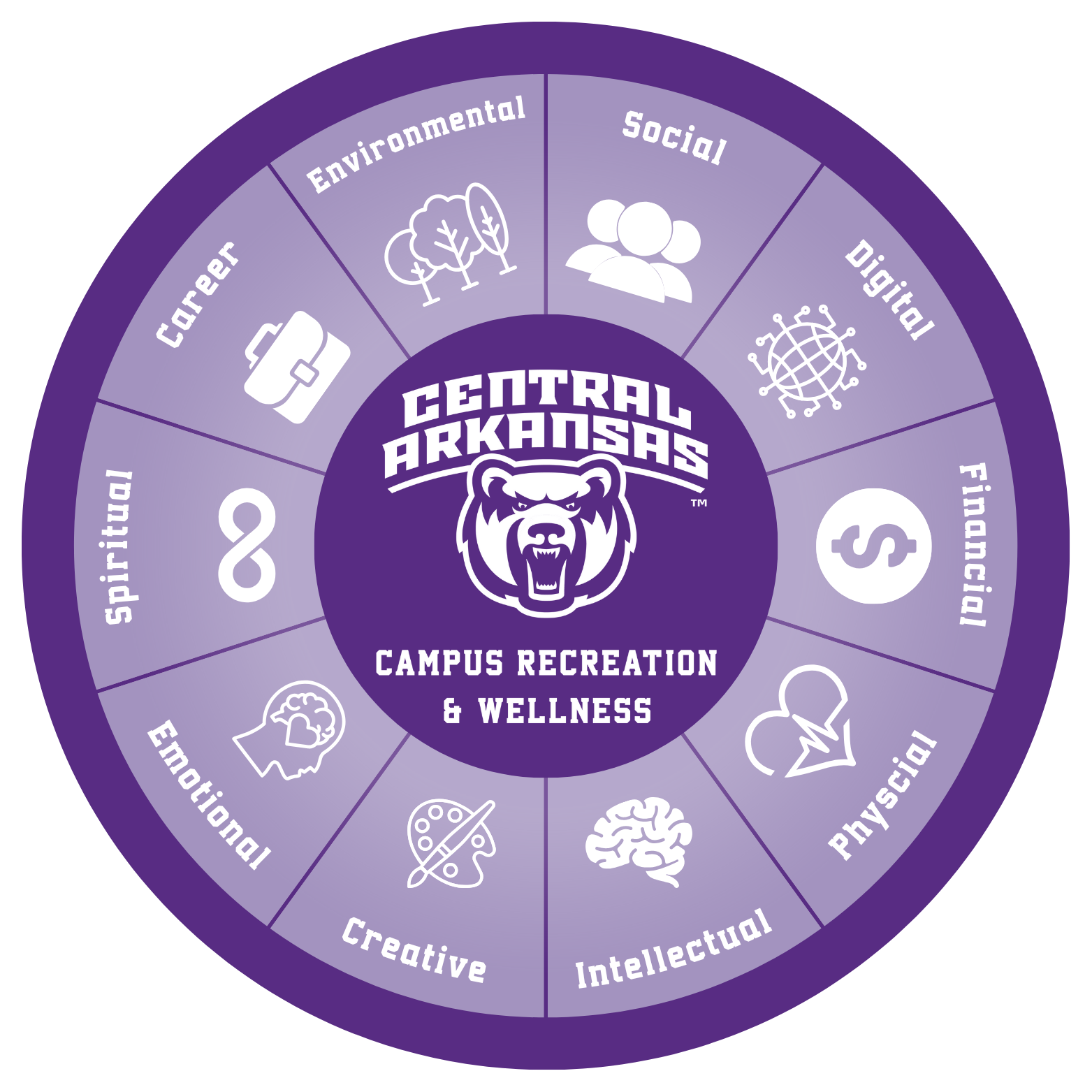Environmental
Being mindful of your surroundings and taking steps to live sustainably and respectfully in your environment.
Social
Forming meaningful relationships, practicing good communication, and feeling a sense of connection and support.
Digital
Using technology in a balanced way that supports mental, emotional, and social well-being.
Financial
Managing your financial resources wisely through budgeting, saving, and making informed spending choices.
Physical
Maintaining a healthy body through exercise, balanced nutrition, adequate sleep, and regular medical checkups.
Intellectual
Pursuing knowledge, engaging in creative thinking, and challenging yourself intellectually throughout life.
Creative
Exploring and expressing yourself through artistic or imaginative activities that bring joy and fulfillment.
Emotional
Understanding and managing your emotions, coping with stress, and building strong emotional resilience.
Spiritual
Finding purpose, direction, and meaning in life through personal beliefs, values, or reflection.
Career
Finding satisfaction and enrichment through your work or studies, while balancing personal and professional goals.

